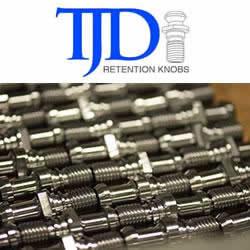Molex Debuts Polymicro FR Optical Fibers
UL 94 V-0 low flammability rated optical fiber for industrial and telecommunications networks
LISLE, Ill.--(BUSINESS WIRE)--Molex has released a new flame retardant version of its Polymicro Optical Fibers. Molex Polymicro Flame-Retardant (FR) Optical Fibers meet the UL 94 V-0 flammability standard for component materials used in telecommunications and industrial applications where a low flammability rating is essential.
"Having a fiber with a low flammability buffer coating offers a distinct advantage in applications where enhanced flammability protection is of paramount importance," said Jim Clarkin, Polymicro general manager, Molex. "Strong, durable Molex Polymicro FR Fibers meet industry requirements for flammability protection."
Polymicro FR Optical Fibers are available in telecommunications grade singlemode or 50µm and 62.5µm graded index construction with a 125µm glass OD/250µm buffer OD. Designed for superior dimensional control and tight tolerances, Polymicro FR Optical Fibers have an operational temperature range of -40 to +100°C. The UL 94 V-0 flammability rating indicates characteristics recommended in applications requiring increased protection from flame propagation and combustion.
The buffer utilized in Polymicro FR Optical Fiber is mechanically strippable similar to an acrylate buffer and imparts exceptional fiber strength. Molex can provide multiple size fibers and buffers, including multimode step index constructions. Available as single fiber in a variety of jacketing materials, Polymicro FR Optical Fibers range from less than 50 microns to over 600 microns in core diameter.
Molex vertically integrated manufacturing capabilities enable production of a complete range of optical fibers designed for deep-UV, NIR and broad-spectrum applications. Polymicro Optical Fiber assembly design configurations are highly customizable, incorporating optomechanical and electromechanical components with custom configured fused silica, in addition to advanced optical features including micro-machined end tips, metal terminations or precision couplings. Fiber type, termination style and jacketing can be specified for optimal application alignment and system performance.
"Molex customer design requirements vary widely in complexity—from a single, finished optical fiber to a complex branching assembly. Our expanding range of Molex Polymicro Optical Fiber profiles and custom assemblies give customers the design flexibility they need for demanding applications, environmental conditions and optical wavelengths," adds Clarkin.
For more information about Polymicro FR Optical Fiber please visit www.molex.com/polymicro/opticalfibers.html.
About Molex:
Molex brings together innovation and technology to deliver electronic solutions to customers worldwide. With a presence in more than 40 countries, Molex offers a full suite of solutions and services for many markets, including data communications, consumer electronics, industrial, medical, automotive and commercial vehicle. For more information, please visit www.molex.com.
Featured Product

T.J. Davies' Retention Knobs
Our retention knobs are manufactured above international standards or to machine builder specifications. Retention knobs are manufactured utilizing AMS-6274/AISI-8620 alloy steel drawn in the United States. Threads are single-pointed on our lathes while manufacturing all other retention knob features to ensure high concentricity. Our process ensures that our threads are balanced (lead in/lead out at 180 degrees.) Each retention knob is carburized (hardened) to 58-62HRC, and case depth is .020-.030. Core hardness 40HRC. Each retention knob is coated utilizing a hot black oxide coating to military specifications. Our retention knobs are 100% covered in black oxide to prevent rust. All retention knob surfaces (not just mating surfaces) have a precision finish of 32 RMA micro or better: ISO grade 6N. Each retention knob is magnetic particle tested and tested at 2.5 times the pulling force of the drawbar. Certifications are maintained for each step in the manufacturing process for traceability.
